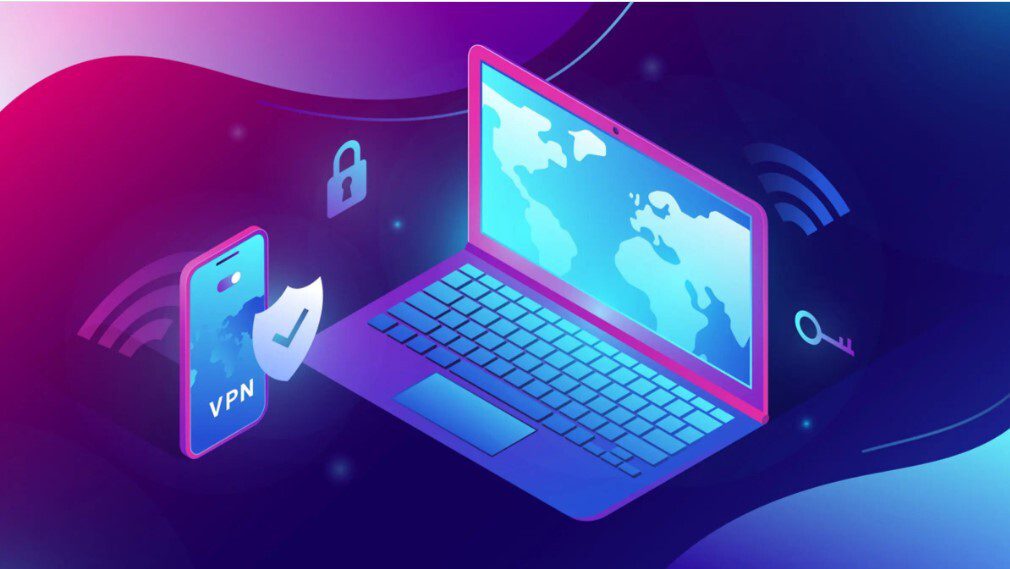Introduction
In today’s virtual age, privateness and security have turned out to be more and more vital. With the great amount of private information and statistics being shared online, it is important to take steps to defend your virtual footprint. One effective device that may help safeguard your privacy is a Virtual Private Network (VPN). In this newsletter, we can discover the idea of securing your virtual footprint and delve into the energy of privacyenbescherming VPNs in ensuring online privacy.
What is a VPN?
A VPN, short for Virtual Private Network, is a technology that creates a stable connection between your device and the internet. It acts as a shield by encrypting your internet visitors and routing them through a secure server. This lets you browse the internet anonymously, hiding your IP address and preventing 1/3 of events from tracking your online activities.
How Does a VPN Work?
When you hook up with the internet through a VPN, your device establishes a steady and encrypted connection to the VPN server. All your internet traffic is then routed via this server before reaching its destination. This method ensures that your information is encrypted and protected from eavesdroppers or hackers.
Securing Your Digital Footprint: The Importance of Privacy
In today’s interconnected world, our virtual footprints are continuously increasing. Our online activities, from browsing web sites to the use of social media structures, remove strains of personal facts that may be tracked and accrued via numerous entities. Securing your virtual footprint is essential to protecting your privacy and preventing potential misuse of your personal information.
The Benefits of Using a VPN for Privacy
Using a VPN offers numerous benefits on the subject of securing your virtual footprint and retaining online privacy. Let’s discover a number of the important blessings:
1. Enhanced Online Security
A VPN creates a steady tunnel for your net visitors, making it difficult for hackers and malicious actors to intercept or get entry to your statistics. By encrypting your connection, a VPN adds an extra layer of protection, mainly when connecting to public Wi-Fi networks or conducting sensitive online transactions.
2. Anonymous Browsing
One of the primary blessings of using a VPN is the capability to browse the internet anonymously. When you connect to a VPN server, your IP address is masked, and your online sports are related to the IP address of the VPN server. This enables you to protect your identity and makes it tough for everybody to track your online conduct.
3. Geo-Restriction Bypass
Many web sites and online services impose geo-restrictions, restricting access to unique regions or international locations. With a VPN, you can bypass those restrictions by connecting to a server in an exceptional location. This allows you to access content and services that may otherwise be unavailable in your vicinity.
four. Protection from Surveillance and Monitoring
In an era of expanded surveillance and monitoring, the use of a VPN can help guard your online privacy. Whether it’s government corporations, internet provider carriers, or advertisers, a VPN prevents them from tracking your online activities and gathering statistics about your surfing behavior.
5. Secure File Sharing
If you often share documents online, using a VPN can provide an added layer of safety. By encrypting your connection, a VPN guarantees that your files are transmitted securely and can’t be intercepted or accessed by unauthorized individuals.
How to Choose the Right VPN
With numerous VPN providers available in the marketplace, it’s important to pick the right one that suits your privacy wishes. Here are a few factors to consider while deciding on a VPN:
1. Strong Encryption and Security Protocols
Look for a VPN that uses sturdy encryption algorithms, like AES-256, and supports steady protocols like OpenVPN or IKEv2. These security features make certain that your statistics remain protected while using the VPN service.
2. No-Logs Policy
An official VPN provider must have a strict no-logs policy, which means they no longer acquire or store any logs of your online activities. This, in addition, enhances your privacy by ensuring that there’s no record of your browsing history.
three. Wide Server Network
Choose a VPN with a wide network of servers in various places. This lets you connect to servers in unique countries, providing you with more options to skip geo-regulations and get right of entry to vicinity-specific content.
four. User-Friendly Interface
A user-pleasant VPN interface makes it easier to connect and configure the VPN settings. Look for a VPN with intuitive and nicely designed apps for your gadgets.
five. Speed and Performance
While using a VPN, it is essential to not forget the rate and performance impact. Opt for a VPN that gives rapid and strong connections, ensuring uninterrupted surfing.
Frequently Asked Questions (FAQs)
1. Can a VPN completely cover my online activities?
While a VPN encrypts your internet visitors and masks your IP address, it is crucial to note that it can’t absolutely hide your online activities. Other factors, like the websites you visit, your login credentials, and the facts you voluntarily disclose, can still deviate. However, a VPN offers a critical layer of protection by making it considerably more difficult for anyone to track your online behavior.
2. Are VPNs legal to use?
Yes, the use of a VPN is a felony in most nations. However, it’s really worth noting that some countries impose restrictions on VPN usage or have precise policies regarding their use. Make sure to familiarize yourself with the legal guidelines and guidelines of the United States of America before using a VPN.
3. Can I use a VPN on multiple devices?
Most VPN vendors provide a multi-tool guide, allowing you to use an unmarried VPN subscription on a couple of devices simultaneously. Whether it is your telephone, tablet, or laptop, you can protect your virtual footprint across all of your gadgets.
Four. Will using a VPN slow down my internet connection?
While using a VPN can introduce a slight drop in internet speed due to the encryption and routing procedures, a good VPN company will attempt to reduce this impact. Choosing a VPN with rapid servers and optimized performance can help maintain high-quality browsing.
5. Can I use a VPN on public Wi-Fi networks?
Using a VPN on public Wi-Fi networks is especially recommended. Public Wi-Fi networks are regularly unsecured, making them top targets for hackers and cybercriminals. By using a VPN, you may stabilize your connection and reduce the capacity risks associated with public Wi-Fi, such as data theft or unauthorized access.
6. Are all VPNs equally stable?
Not all VPNs are created equal on the subject of security. Some VPN carriers can also compromise on encryption standards or logging policies, which could affect the general protection of the carrier. It’s important to pick out a good VPN company that prioritizes consumer privacy and employs strong safety features.
Conclusion
In an age where privacy and online security are paramount, securing your digital footprint has by no means been extra important. VPNs offer a powerful solution by providing a secure and personal connection between your device and the internet. By encrypting your internet traffic, hiding your IP address, and bypassing geo-regulations, VPNs empower you to take control of your online privacy. Choose a reliable VPN provider that aligns with your privacy desires and start securing your digital footprint today.



































